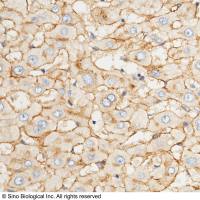Purification of Ribonucleoproteins Using Peptide-Elutable Antibodies and Other Affinity Techniques
互联网
446
Recently developed affinity purification methods have revolutionized our understanding of the higher-ordered structures of multisubunit, often low-abundance macromolecular complexes, including ribonucleoproteins (RNPs). Often, purification by classical, non-affinity-based techniques subjects salt-labile complexes to an ionic strength incompatible with the integrity of the RNP, leading to a misrepresentation of the true higher-ordered structure of these complexes. A family of plasmids has been generated that can be used to introduce a number of different epitope tags, including peptide-elutable affinity tags, into the genome of the yeast Saccharomyces cerevi-siae . Alternatively, these plasmids may be used for plasmid-borne expression of epitope-tagged proteins in either yeast or Escherichia coli . The gentle elution of the complex from the antibody affinity matrix can be performed at 4 �C and is compatible with a range of salt and pH conditions. RNPs purified by this method are active and suitable for downstream analyses such as RNA sequencing, structural analysis, or mass spectrometry peptide identification.






